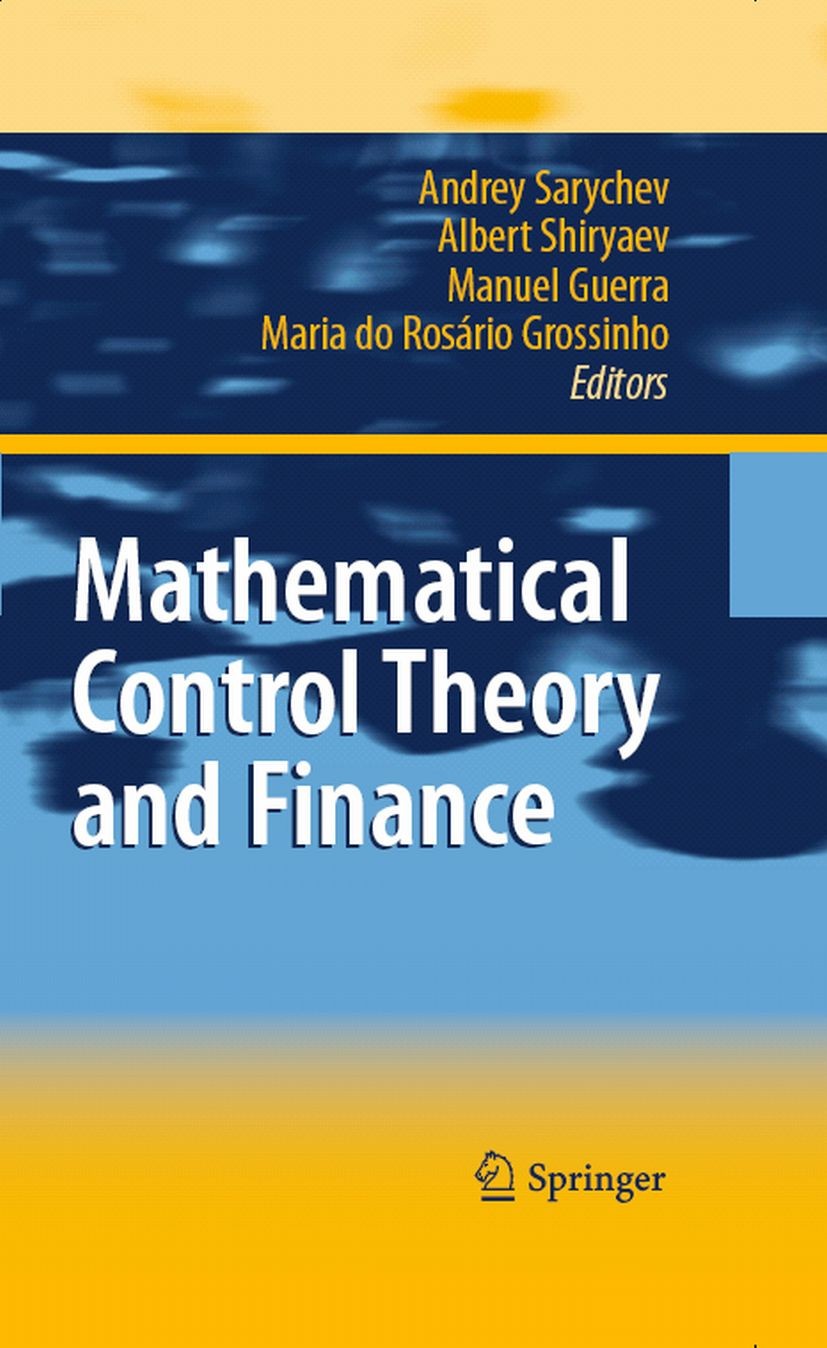| 书目名称 | Mathematical Control Theory and Finance | | 编辑 | Andrey Sarychev,Albert Shiryaev,Maria do Rosário G | | 视频video | http://file.papertrans.cn/627/626060/626060.mp4 | | 概述 | Includes supplementary material: | | 图书封面 |  | | 描述 | Control theory provides a large set of theoretical and computational tools with applications in a wide range of ?elds, running from ”pure” branches of mathematics, like geometry, to more applied areas where the objective is to ?nd solutions to ”real life” problems, as is the case in robotics, control of industrial processes or ?nance. The ”high tech” character of modern business has increased the need for advanced methods. These rely heavily on mathematical techniques and seem indispensable for competitiveness of modern enterprises. It became essential for the ?nancial analyst to possess a high level of mathematical skills. C- versely, the complex challenges posed by the problems and models relevant to ?nance have, for a long time, been an important source of new research topics for mathematicians. The use of techniques from stochastic optimal control constitutes a well established and important branch of mathematical ?nance. Up to now, other branches of control theory have found comparatively less application in ?n- cial problems. To some extent, deterministic and stochastic control theories developed as di?erent branches of mathematics. However, there are many points of contact b | | 出版日期 | Book 2008 | | 关键词 | Deterministic Control; Finance; Interpolation; Stochastic Control; calculus; entropy; incomplete markets; m | | 版次 | 1 | | doi | https://doi.org/10.1007/978-3-540-69532-5 | | isbn_softcover | 978-3-642-08908-4 | | isbn_ebook | 978-3-540-69532-5 | | copyright | Springer-Verlag Berlin Heidelberg 2008 |
The information of publication is updating

|
|
 |Archiver|手机版|小黑屋|
派博传思国际
( 京公网安备110108008328)
GMT+8, 2025-12-28 00:24
|Archiver|手机版|小黑屋|
派博传思国际
( 京公网安备110108008328)
GMT+8, 2025-12-28 00:24


